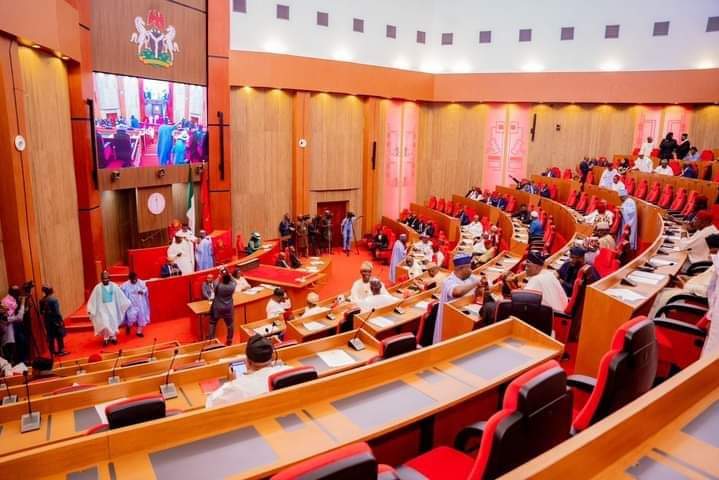The Nigerian Senate has issued a strong warning to government Ministries, Departments, and Agencies (MDAs), stating that any agency failing to appear before its Finance Committee to account for funds allocated in 2024 risks receiving zero allocation in the 2025 budget.
This ultimatum was delivered on Monday during an investigative hearing on internally generated revenue (IGR), fiscal accountability, and Nigeria’s financial management system. The committee, chaired by Senator Sani Musa (APC Niger East), expressed frustration over irregularities in financial records and inefficiencies in government spending.
Senator Musa declared, “This performance index exercise on the various MDAs is preparatory to the 2025 budget. Any agency that fails to appear before this committee upon invitation risks zero allocation in the 2025 budget because records of how appropriations made for 2024 are expended must be provided with facts and figures.”
### **Revenue Figures and Gaps Identified**
The Accountant-General of the Federation, Oluwatoyin Madein, presented a summary of the Federal Government’s internally generated revenue up to September 2024. Key figures included:
– Independent revenue: ₦2.7 trillion,
– Operating surplus from Government-Owned Enterprises: ₦2.3 trillion,
– MDAs’ internally generated revenue: ₦344 billion.
However, the committee criticized the report for focusing solely on the Accountant-General’s office, leaving out critical details about the Federal Government’s overall financial activities.
### **Calls for Comprehensive Review**
The committee resolved to summon additional stakeholders, including the Revenue Mobilisation Allocation and Fiscal Commission, the Nigerian Extractive Industries Transparency Initiative (NEITI), and the Nigerian National Petroleum Company Limited (NNPCL), to a joint session. This session aims to ensure clarity and consistency in reporting and address discrepancies in submissions.
“This is not about hearing from one side and another separately; we need all stakeholders present at the same time to provide clarity and consistency in their reports,” Senator Musa emphasized.
### **Criticism of Centralized Payment System**
Committee members also expressed frustration with the centralized payment system managed by the Office of the Accountant-General. They argued that requiring over 700 MDAs to process payments through a single office had led to inefficiencies, delayed projects, and diminished public trust.
Concerns were raised about reports of contractors allegedly paying under-the-table fees—5% of contract value—to expedite payments. If verified, lawmakers noted, this practice would represent a major accountability breach.
### **Poor Stamp Duty Revenue Performance**
The Accountant-General further revealed disappointing stamp duty revenue between 2020 and 2024, totaling ₦30.3 million compared to the ₦301 billion IGR. Lawmakers linked this to poor budget performance, citing delays in payments as a factor.
Defending the centralized payment policy, the Accountant-General said it was introduced to curb inefficiencies and prevent the rollover of unutilized funds annually.
### **Next Steps**
The committee has directed the Accountant-General to provide all outstanding reports by Wednesday for a follow-up meeting. Other key agencies, including the NNPCL and NEITI, are also expected to appear before the committee to address concerns over financial discrepancies.
The Senate reaffirmed its commitment to improving fiscal oversight, accountability, and transparency in managing Nigeria’s financial resources.

